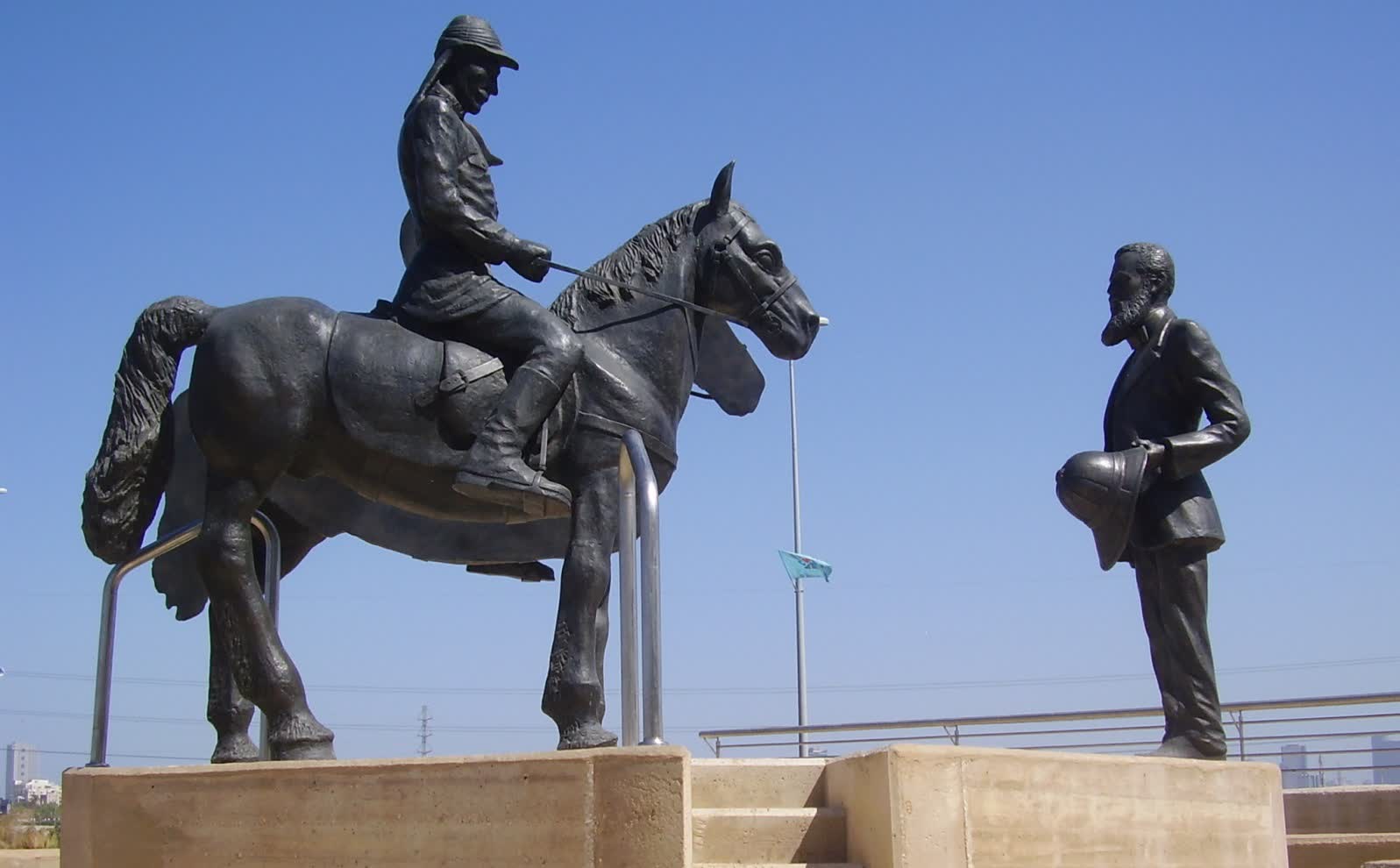October 28, 1898, Meets Kaiser Wilhelm II of Germany in Palestine
 At nine o’clock a commotion on the highway, which was lined with a mixed multitude of Arab beggars, womenfolk, children, and horsemen, heralded the approach of the Imperial procession. Fierce-looking Turkish cavalry came galloping toward us at full tilt, rifles at the ready and shooting even more threatening glances all around. Then the outriders of the Kaiser. And there, among a grey-clad group, including several ladies, the Kaiser himself.
At nine o’clock a commotion on the highway, which was lined with a mixed multitude of Arab beggars, womenfolk, children, and horsemen, heralded the approach of the Imperial procession. Fierce-looking Turkish cavalry came galloping toward us at full tilt, rifles at the ready and shooting even more threatening glances all around. Then the outriders of the Kaiser. And there, among a grey-clad group, including several ladies, the Kaiser himself.
I gave the schoolchildren’s choir of Mikveh the signal to intone “Heil Dir im Siegerkranz.” I stood beside one of the ploughs and took off my cork-helmet. The Kaiser recognized me even at a distance. It gave him a bit of start; he guided his horse in my direction- and pulled up in front of me. I took two steps forward; and when he leaned down over the neck of the horse and held his hand down to me, I stepped up quite close to his horse, stretched up my own hand, and stood before him with my head bared.
He laughed and flashed his imperious eyes at me.
“How are you?”
“Thanks, Your Majesty! I am having a look at the country. And how has the journey agreed with Your Majesty so far?”
He blinked grandly with his eyes:
“Very hot! But the country has a future.”
“At the moment it is still sick,” I said. .
“Water is what it needs, a lot of water!” he said from above me.
“Yes, Your Majesty! Irrigation on a large scale!”
He repeated: “It is a land of the future!”
Perhaps he said some other things which have escaped me, for he stopped with me for several minutes. Then he held down his to be again, and trotted off. The Empress, too, had ridden forward a bit and gave me a nod and a smile. Then the Imperial procession moved on to the strains of “Heil Dir im Siegerkranz” from the children’s throats.
I noticed the Kaiser drawing himself up more proudly in the saddle and saluting his hymn, as, back in Breslau, he had saluted the statue of his grandfather.
Among those riding behind him I recognized Court-Marshal Eulenburg, who greeted me affably.
Wolffsohn, that good soul, had taken two snapshots of the scene. At least he thought he had. He patted his kodak proudly: “I wouldn’t part with these negatives for ten thousand marks:”
But when we got to the photographer’s at Jaffa and had the negatives developed, it turned out that the first picture showed only a shadow of the Kaiser and my left foot; the second was completely spoiled.
Source: Diaries of Theodore Herzl, Central Zionist Archive



